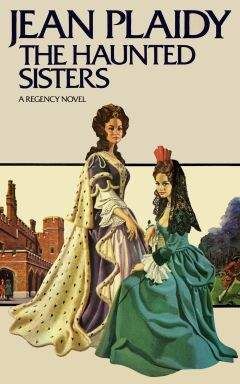Jean Plaidy - For a Queens Love: The Stories of the Royal Wives of Philip II
На сайте mybooks.club вы можете бесплатно читать книги онлайн без регистрации, включая Jean Plaidy - For a Queens Love: The Stories of the Royal Wives of Philip II. Жанр: Прочее издательство неизвестно,. Доступна полная версия книги с кратким содержанием для предварительного ознакомления, аннотацией (предисловием), рецензиями от других читателей и их экспертным мнением.
Кроме того, на сайте mybooks.club вы найдете множество новинок, которые стоит прочитать.

Jean Plaidy - For a Queens Love: The Stories of the Royal Wives of Philip II краткое содержание
For a Queens Love: The Stories of the Royal Wives of Philip II читать онлайн бесплатно
At Santiago de Compostella, the procession halted. There they must stay for several days that Philip might pay his respectful devotion at the shrine of St. James, the tutelar saint of Spain. There were always many pilgrims gathered in this city, but on this occasion their numbers were increased on account of the royal visit.
The sojourn in this town was devoted to religious ceremonies, which were a change after the tourneys and bullfights which they had had to witness at Astorga and Benavente.
Here they met the envoys from England.
When Philip received them, his friends and followers were astonished by the change in him. It was as though he had found a lifelike mask which he had put over his severe features. He smiled at these Englishmen; he greeted them with warmth; and those of his friends who were not amazed were jealous.
“See,” they said to one another, “what smiles he has for these English! When has he ever given us such smiles?”
Only Ruy seemed to understand and, when they were alone, congratulated him on a masterly performance.
When Philip had given every Englishman in the Duke of Bedford’s embassy a costly present, the party began the thirty miles’ journey to Corunna.
A wonderful sight greeted them in the harbor there. A great armada had assembled to escort Philip to England, and protect him if need be from the French King’s fleet; for that monarch would doubtless do his best to prevent Philip’s arrival in England, as he was hoping to secure the English throne for his daughter-in-law, Mary Queen of Scots.
None watched that array with more delight than Carlos. As he looked at the banners of red silk and the brilliantly colored pennons, as he admired the crimson damask and the great standard decorated with the Imperial arms, he was thinking: “Philip is going, and may it please God and the saints that he never comes back.”
Then Carlos bade a public farewell to his father, and the fleet of a hundred ships set sail for England.
Ahead lay Southampton.
Philip stood on deck and looked at the land he had come to conquer, not by war, but by marriage with its Queen, by the son he would have, and by the new man he must become for the sake of the English.
On the deck with him stood the important men who had accompanied him on this great mission. Ruy was there, ever a comfort, shrewd and calm, always to be relied upon; there was noble Alba of great experience, the handsome Count of Feria, Egmont, and the rest.
A boat was being rowed out to their vessel. In it were Lord Howard, the Queen’s Admiral, Lords Shrewsbury, Arundel, and Derby with Sir John Williams.
Philip was dressed in black velvet and cloth of silver, and his doublet was hung with chains of gold. His garments were decorated with dazzling jewels of many colors; he was a glittering and magnificent sight; and in such garments he, who had always insisted on wearing the simplest clothes except for state occasions, seemed almost a stranger to his friends.
He spoke to the English in Latin, and apologized for his ignorance of their tongue. His manner was gracious and charming; it was clear—for the English made no secret of their feelings—that these men who had come to welcome him in the name of the Queen were agreeably surprised.
Now a barge, lined with cloth of gold and manned by men in the white and green of the Tudor livery, approached the vessel. This was the royal barge which had been sent to carry Philip to English soil; and when he reached the land, the Earl of Arundel begged his leave to perform a little ceremony which, he said, he would do at the express command of the Queen. Philip was then presented with the Order of the Garter.
The company rode to lodgings which had been prepared for them, and there, to the further astonishment of the hidalgos, Philip expressed his desire to pledge his friendship to England in a draught of English beer.
This he drank as though it were Spanish wine, smacking his lips, declaring that he could wish to be drowned in such nectar.
The Englishmen were deceived. Who had said a moody, morose man was coming to wed the Queen? Someone had lied to them. This Philip of Spain was a hearty fellow—for all that he was of such low stature.
Only when he was alone with Ruy in that alien house in that alien land did Philip’s features relax into their familiar expression.
“Highness,” said Ruy, “your father would be proud of you. This night you have shown these barbarians a man they will love. You might have been one of them, Highness. It was as though you played a part with mummers.”
Philip was reflective. “There are times, Ruy,” he said, “when I wonder what manner of man I am. I am sober, am I not? And yet perhaps there is in me something of the barbarian I showed these people tonight. But the test lies before me. Oh, fortunate Ruy! You who are soon to delight in the beautiful Ana!”
Ruy lifted his shoulders and smiled. “Perhaps she has lost her beauty before I shall enjoy it. She has been fencing with a page and lost an eye.”
“She is a wild girl, Ruy, but the loveliest in Spain. The most haughty too, I’ll swear. I doubt even the loss of an eye could entirely alter that. Well, your trials will come, Ruy, with Ana. In the meantime … think of me … with Mary. Think of me and pray that I shall not flinch from my duty.”
“Your Highness flinch from his duty! As well imagine that the sun will not rise.”
“Yet pray for me, Ruy, for in this alien land I need your prayers.”
So Philip set out from Southampton.
The coldness—although it was July—seemed to penetrate every garment to his bones. His surcoat was of black velvet, twinkling with a hundred diamonds; his trunks and doublet were of shining white satin with a pattern of gold. It was fine at first, yet it seemed drear to the Spaniards, because there was a mist in the air; and they had scarcely begun the journey when the rain began to fall.
It was necessary then for Philip to put on the thick cloak of red felt, but the rain seemed to penetrate even that thickness. People had gathered at the roadside to watch them; they were an ill-mannered crowd. Some of them shrieked with laughter, which could not be misunderstood; they were shouting their derision of the foreigners who were afraid of a drop of rain.
At Winchester it was necessary to stop and change their garments; and here at the Cathedral the bishops paid their homage to Philip. Here the Prince met that Bishop Gardiner—the Queen’s favorite—who rejoiced in his coming and believed that here was a Moses come to lead England back to the promised land.
Philip and his followers were then taken to the Dean’s house.
“Our Queen, being a maiden lady of great delicacy,” explained the Dean, “does not think you should spend a night under her roof until after the ceremony.”
Philip smiled approval of the Queen’s delicacy, and declared that he would be delighted to accept the hospitality of the Dean.
“Her Majesty is lodged in Bishop Gardiner’s Palace, which adjoins the Deanery.”
“Then I see in that a delightful arrangement,” said the new and charming Philip.
In the Deanery a banquet was prepared for Philip and his men.
Once more they removed their wet clothes, but they found the rooms draughty, and in spite of the time of year they were shivering with the cold. The Spaniards were disgruntled; they sensed the contempt of the English; and the new character which Philip had assumed, while delighting the English, was distasteful to them. Never, they declared, had Spaniards been treated with such lack of courtesy. These English had no manners; they were too bluff, too hearty. During the sojourn in Southampton, when his Spanish followers had gone to church with Philip, they had at the end of the service been ordered out by officious Englishmen, they were told that the people would like to see Philip leave the church surrounded by Englishmen. Nor had Philip protested; in his new role he seemed prepared to do everything these people wished. And as they left the church the rain had teemed down, and Philip borrowed a cloak and hat from one of the English and walked forth in the rain in these most undignified garments.
Now at the banquet in the Deanery they were expected to eat the food prepared for them—and not eat delicately either. They must partake of every dish upon the table, and while the English were prepared to tackle the great mounds of beef, venison, peacocks, and pastry, and to wash these down with quantities of beer, the Spaniards must follow their master’s lead and feign to enjoy barbarians’ food with barbarians.
When they had retired to their rooms for the night, Philip said to Ruy: “We have been but a few days in this country, but it seems like years.”
“Your Highness will grow accustomed to it before long.”
“I rejoice that one more day is over.”
But that day was not over, for there was at that moment a knock on the door. Ruy, grasping his sword—for there was not one member of the party who trusted the English—went to the door.
A woman stood there. She said in halting Spanish: “My lord, I am Mistress of the Queen’s Robes, and I come to tell His Majesty that Her Majesty the Queen wishes him to visit her in her closet tonight. It is her wish that he should bring with him but few of his followers.”
“I fear His Highness has retired for the night,” began Ruy.
But Philip was immediately beside him, forcing a smile. The woman, seeing him, dropped a deep curtsy.
“The Queen wishes to see me!” cried Philip. “Then I am delighted, and eagerly will I go to her. But I must have a few moments in which to make myself presentable.”
The woman rose and looked at Philip with admiration. He could see by her expression that she was wondering who had circulated those ridiculous stories about Philip of Spain. Solemn! Full of ceremony! Nothing of the sort! She would go back to her mistress and report that she had seen him and that he appeared to be not only handsome, but the kindest of men.
“Then may I send the Queen’s envoy in ten minutes to conduct your Highness to her?”
“I am all impatience,” said Philip.
The door shut on her and the two men looked wearily at each other.
“There is no help for it,” said Philip. “Now … for another change of costume.”
Ruy helped him put on the French surcoat with gold and silver embossments; the doublet and trunks were made of white kid, decorated with gold embroidery.
“We must not go alone,” said Ruy. “How do we know what these people plan? I’ll summon Feria and Alba … and I think Medina Celi, Egmont, and Horn … with perhaps a few more.”
Philip did not answer. He was thinking: Now the moment has come. Now I shall be brought face to face with my bride.
In ten minutes he was ready, surrounded by those grandees who Ruy had considered should accompany them.
The messenger from the Queen led them out of the Deanery and across a small garden to the Palace of the Bishop of Winchester. They mounted a staircase, and the messenger threw open a door and announced: “His Highness King Philip.”
Philip went forward. He was in a long gallery, the walls of which were hung with tapestry. Pacing up and down in a state of acute nervousness was a little woman. With her was Gardiner, Bishop of Winchester; some other gentlemen and ladies, obviously of high rank, were also in the gallery.
She stood still as Philip entered.
For a moment he thought her a charming sight. She was magnificently dressed in black velvet, cut away at the waist to show a petticoat of silver; the coif which adorned her sandy hair was of black velvet and cloth of gold; about her waist was a girdle made of flashing stones of many colors.
Philip approached and with a qualm kissed her on the mouth in accordance with the English custom. He saw the warm color flood her transparent skin; he saw too that, although she was far from being as ugly as she had been represented, she was a woman completely lacking in physical attractiveness. On her face were lines put there by ill-health and bitterness; clearly she showed herself to be a woman who had so far gone unloved through life.
What had she heard of him? he wondered. That he was cold, moody, and hardly ever smiled? Now he was all smiles, all eagerness.
“It was good of your Highness to come,” she said in Latin, for although she understood Spanish well enough to read it, she did not speak it.
He answered in Latin: “The Queen commanded. She must be obeyed. Nor was it any hardship when she commanded me to do that for which I have been longing these many weeks.”
What is happening to me? he asked himself. How can I talk thus? Have I really become this hypocrite, this sly schemer?
But it was not only expediency which made him wish to please; she moved him—not with love nor physical desire, but with a deep pity.
She looked a little younger now, flushed, excited, clearly liking the looks and manners of the man who was to be her husband. She led him to a canopy, at one end of the gallery, beneath which had been placed two royal chairs. They sat, and one by one the Spaniards came forward to kiss the Queen’s hand.
When this was done, the party went into the next room that Philip might greet the Queen’s ladies; and this he did by kissing them all on the mouth. As the Queen watched him, it was clear to many of the Spaniards that she did not care to see Philip salute her ladies thus. They considered that significant. Was she already half in love with her Spanish bridegroom? That augured well. Soon England would be completely under the domination of Spain.
After he had saluted the ladies, the Queen led Philip back to the gallery.
“Your Majesty will have a busy time before her,” said Philip solicitously. “I will not stay to tire you.”
“Nay!” cried Mary. “I am not tired. It is so pleasant to see you. Let us stay here and talk for a while.”
There was nothing to be done but sit under the canopy. The Queen signified that ceremony was to be set aside. The Spaniards might talk as well as they could with those of her ladies and gentlemen who were in the gallery, and leave Philip to the Queen.
She looked at him almost shyly. “You are different from what I have been led to expect,” she said.
“I trust I do not disappoint you?”
“Far from it. Far … far from it. You … you please me.”
“Then I have my heart’s desire.”
“I was afraid … being so unversed in the ways of love and marriage. I thought you might be a lusty gentleman given only to carnal pleasures and …”
“Nay,” he said with a smile. “I shall be a sober husband.”
“And not too sober,” she answered. “I was told that you never smiled. I have seen you smile this night.”
“That is due to being in your Majesty’s presence.”
“Ah!” sighed the Queen. “You are gallant … you Spaniards.”
“Your Majesty is half Spanish.”
“That is true. My mother would often talk to me of Spain.” Her mouth squared, as it always did when she spoke of her mother. “I longed to visit that country and know more of my mother’s people.”
“And now one of them comes forth to wed you.”
Похожие книги на "For a Queens Love: The Stories of the Royal Wives of Philip II", Jean Plaidy
Jean Plaidy читать все книги автора по порядку
Jean Plaidy - все книги автора в одном месте читать по порядку полные версии на сайте онлайн библиотеки mybooks.club.




